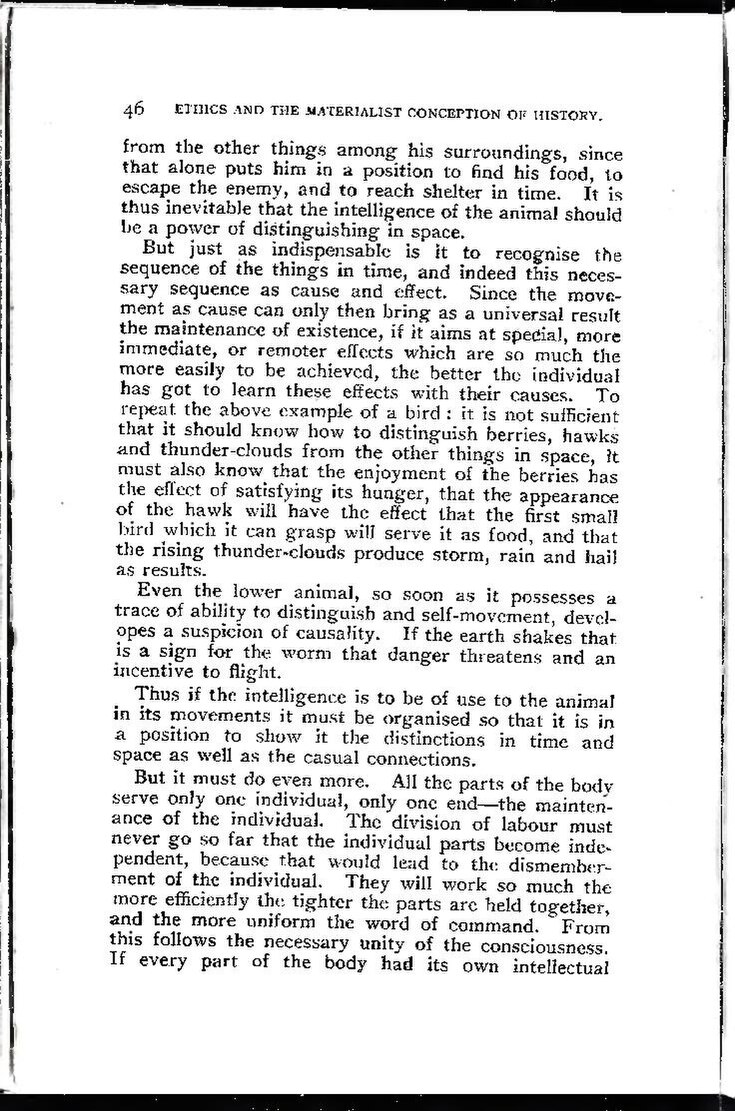from the other things among his surroundings, since that alone puts him in a position to find his food, to escape the enemy, and to reach shelter in time. It is thus inevitable that the intelligence of the animal should be a power of distinguishing in space.
But just as indispensable is it to recognise the sequence of the things in time, and indeed this necessary sequence as cause and effect. Since the movement as cause can only then bring as a universal result the maintenance of existence, if it aims at special, more immediate, or remoter effects which are so much the more easily to be achieved, the better the individual has got to learn these effects with their causes. To repeat the above example of a bird: it is not sufficient that it should know how to distinguish berries, hawks and thunder-clouds from the other things in space, it must also know, that the enjoyment of the berries has the effect of satisfying its hunger, that the appearance of the hawk will have the effect that the first small bird which it can grasp will serve it as food, and that the rising thunder-clouds produce storm, rain and hail as results.
Even the lower animal, so soon as it possesses a trace of ability to distinguish and self-movement, developes a suspicion of causality. If the earth shakes that is a sign for the worm that danger threatens and an incentive to flight.
Thus if the intelligence is to be of use to the animal in its movements it must be organised so that it is in a position to show it the distinctions in time and space as well as the casual connections.
But it must do even more. All the parts of the body serve only one individual, only one end—the maintenance of the individual. The division of labour must never go so far that the individual parts become independent, because that would lead to the dismemberment of the individual. They will work so much the more efficiently the tighter the parts are held together, and the more uniform the word of command. From this follows the necessary unity of the consciousness. If every part of the body had its own intellectual
